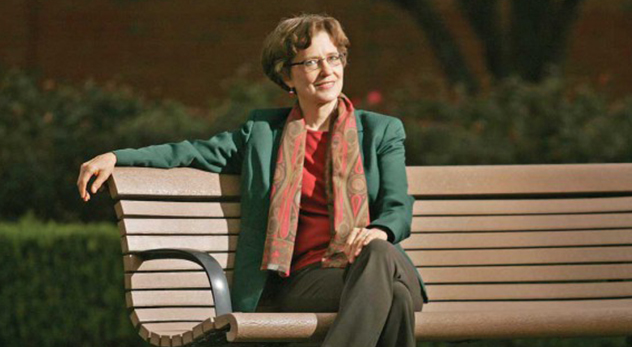Nancy Pearcey’s mission to reinvigorate the evangelical mind
The evangelical emperor has not intellectual clothes. Such was historian Mark Noll's argument in his 1995 book "The Scandal of the Evangelical Mind." While the notion that evangelicals are just plain dumb is a both a generalization and a canard, it is correct that the movement has not always been intellectually rigorous. Noll's book jostled the evangelical movement. They forced evangelical colleges to reevaluate their pedagogical rigor, spawned the creation of Books and Culture magazine, and pushed many Christian intellectuals to the fore. One such thinker was Nancy Pearcey.
Pearcey arrived on the scene when she co-authored a book with Charles Colson, "How Now Shall We Live?," which urged the faithful to develop a Christian worldview and sold more than 350,000 copies. Formerly the Francis Schaeffer Scholar at the World Journalism Institute, Pearcey serves as a professor at Houston Baptist University and a fellow at the Discovery Institute . She has also continued to publish books on apologetics and Christian thought, including the Gold Medallion-winning "Total Truth: Liberating Christianity from Its Cultural Captivity" and her newest title, "Finding Truth: 5 Principles for Unmasking Atheism, Secularism, and Other God Substitutes." Here we discuss her mission and message.
RNS: You're an agnostic-turned-Christian-apologist. What about this gives you a unique voice in your current role?
NP: A conviction that questions must be taken seriously—because I had them myself. About midway through high school, I started asking questions about my Christian upbringing, starting with the basics: "How do we know Christianity is true?" None of the adults in my life—parents, pastors, professors—offered any answers, so I eventually decided Christianity must not have answers. I discarded my church background and started reading books on philosophy, hoping maybe that’s where I would find people who address the big questions: "Is there truth?" and "Is there meaning to life?"
My journey led to thorough-going skepticism and relativism, until finally I stumbled across L’Abri, the ministry of Francis and Edith Schaeffer in Switzerland. That’s where I first encountered Christians capable of engaging the secular world of ideas. I concluded that [tweetable] Christianity is not a privatized religious “belief system” but truth about all of reality.[/tweetable]
RNS: What did you learn from working with Chuck Colson that has prepared you for your work today?
